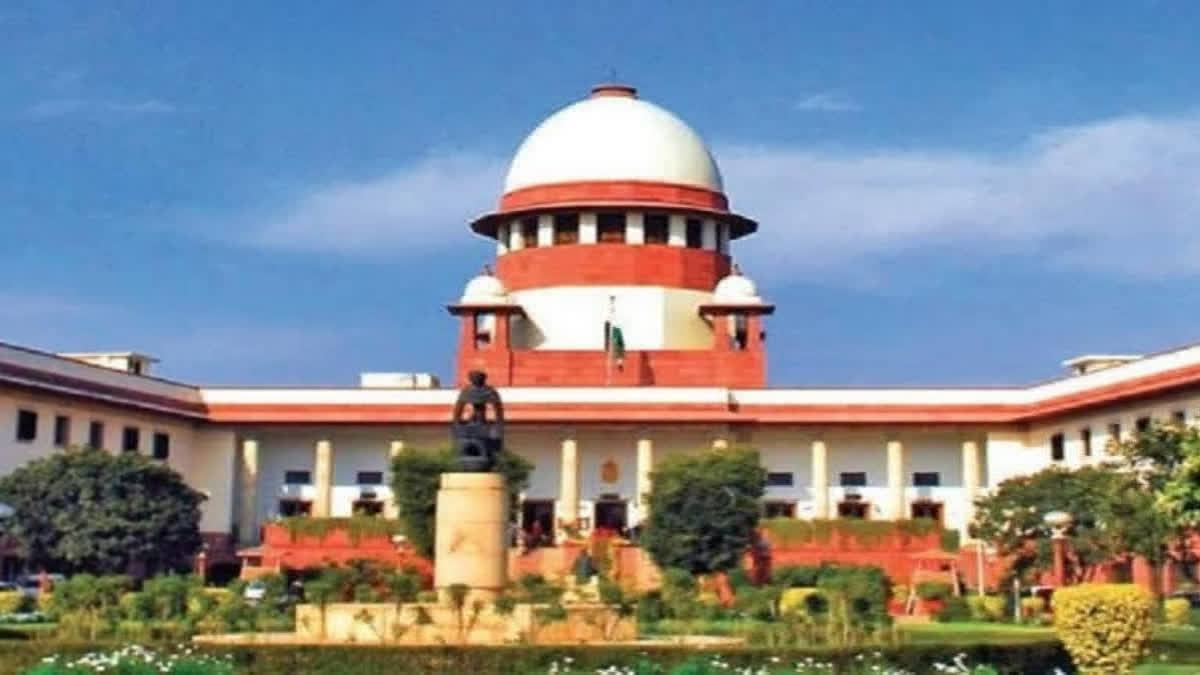New Delhi: The Supreme Court has said the brutality of the offence does not dispense with the legal requirement of proof beyond a reasonable doubt and conviction can only happen if guilt is proved beyond a reasonable doubt on the basis of legally admissible evidence and stressed, “there cannot be a moral conviction”.
The verdict was delivered by a bench comprising justices Abhay S Oka, Ahsanuddin Amanullah and Augustine George Masih. The case was regarding the abduction and murder of Gurpal Singh on July 8, 2013. On July 9, 2013, the torso with other body parts of the deceased was recovered from a canal. The sister of the deceased claimed that the deceased, who had come to meet her, was abducted by the accused in a car after taking away his vehicle. The apex court observed that the identification of the accused by the sister is very doubtful in the absence of the test identification parade.
The apex court, on the CCTV footage, said the CD did not bear any marking or sign from either of the witnesses. "Most importantly, the prosecution failed to produce the certificate under Section 65B of the Evidence Act. Therefore, the evidence in the form of the CD will have to be kept out of consideration as it is not admissible," said the bench.
The bench disbelieved the testimony of Paramjeet Kaur, sister of the deceased, who claims to be an eyewitness. The bench also found that another eyewitness, her husband, though available, had not been examined.
“There is one more crucial aspect. Assuming that the CCTV footage was admissible, the trial judge and the judges of the High Court did not see the CCTV footage. Still, the courts relied upon it”, added the bench.
The bench said CCTV footage is one of the circumstances in the chain of circumstances relied upon by the prosecution and even if one of the circumstances forming part of the chain is not proved, the prosecution case cannot be held as established.
The bench said that it must be noted here that the recovery of the torso and other body parts was made on July 9, 2013, and the recovery cannot be said to be at the instance of the accused.
The bench said a perusal of the deposition of a prosecution witness shows that he attempted to prove the confessions allegedly made by the accused to a police officer when they were in police custody. “There is a complete prohibition on even proving such confessions. The learned trial judge has completely lost sight of Sections 25 and 26 of the Evidence Act and has allowed PW-27 to prove the confessions allegedly made by the accused while they were in police custody," said the bench.
The bench said the trial judge should not have recorded an inadmissible confession in the deposition. A confessional statement made by the accused to a police officer while in custody is not admissible in the evidence except to the extent to which Section 27 is applicable, it added.
“If such inadmissible confessions are made part of the depositions of the prosecution witnesses, then there is every possibility that the trial courts may get influenced by it," the bench said.
The apex court acquitted Randeep Singh alias Rana and another in the case by setting aside the Punjab and Haryana High Court's judgment, which upheld their conviction and sentence of life term. The state government lawyer had argued the CCTV footage also proved the complicity of the accused. He submitted that this case is of a very brutal and gruesome offence, and, therefore, no interference should be made with concurrent judgments of conviction.
The apex court said it is true that this is a case of brutal murder, and emphasised that the brutality of the offence does not dispense with the legal requirement of proof beyond a reasonable doubt. “In this case, there is no legal evidence to prove the involvement of the accused. The courts can convict an accused only if his guilt is proved beyond a reasonable doubt based on legally admissible evidence. There cannot be a moral conviction," said the bench, in the judgment delivered on November 22.
"It is not possible to sustain the conviction of the accused only based on the evidence of recovery. Moreover, all the circumstances forming part of the chain have not been proved," the bench said.
Read more: PM Security Lapse In Punjab: SC Rejects State's Plea Seeking Statements Of Witnesses



